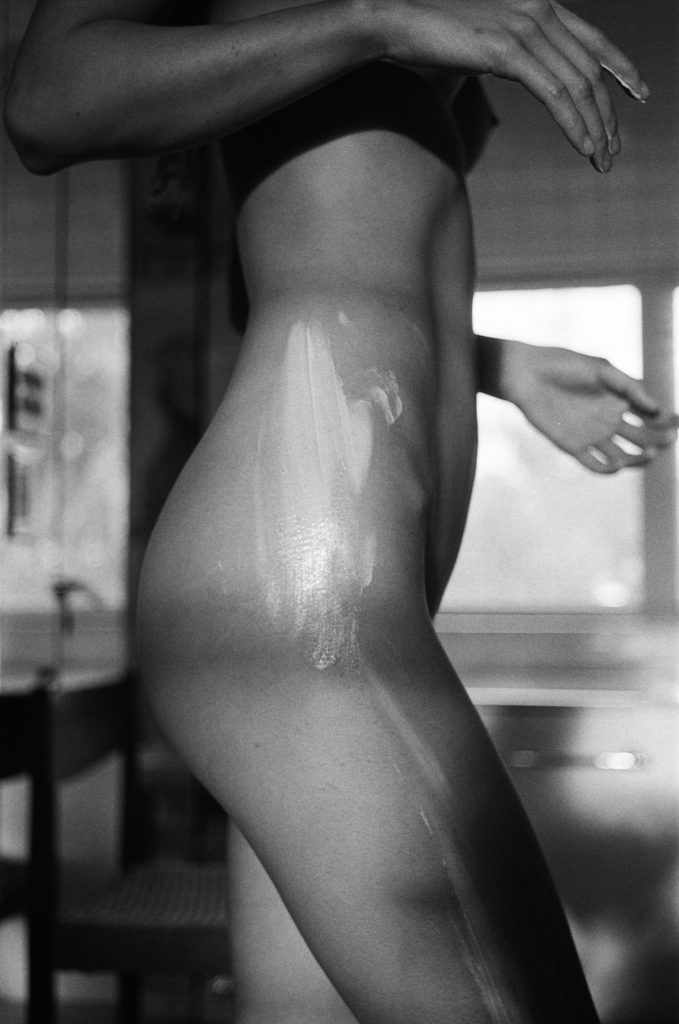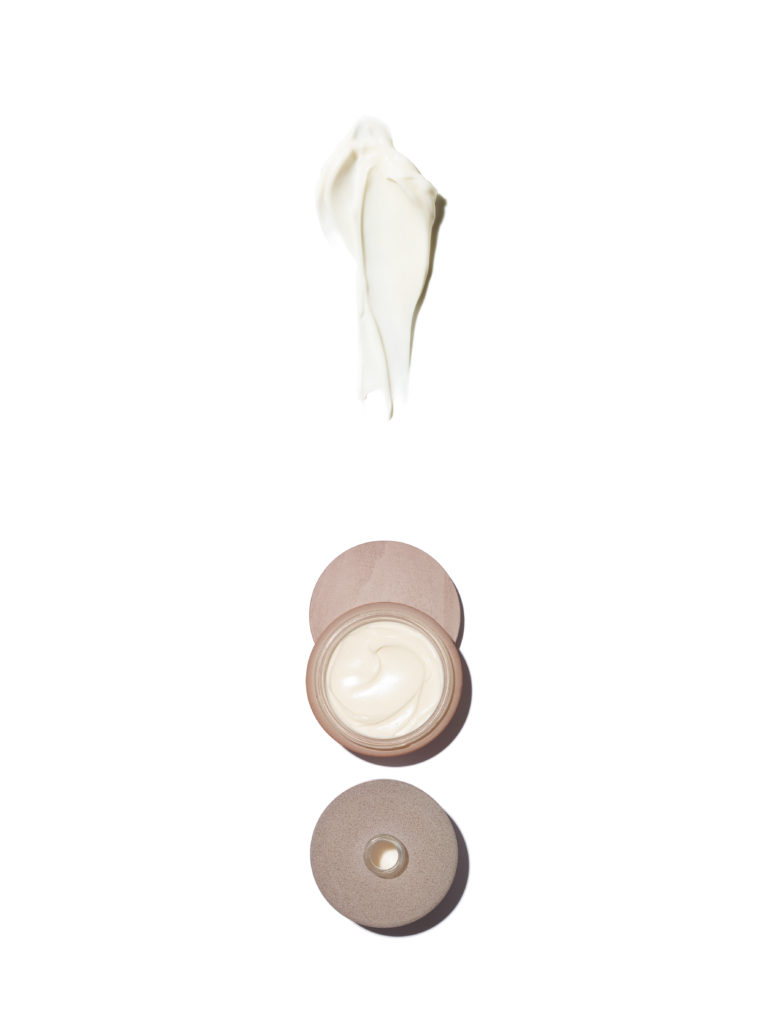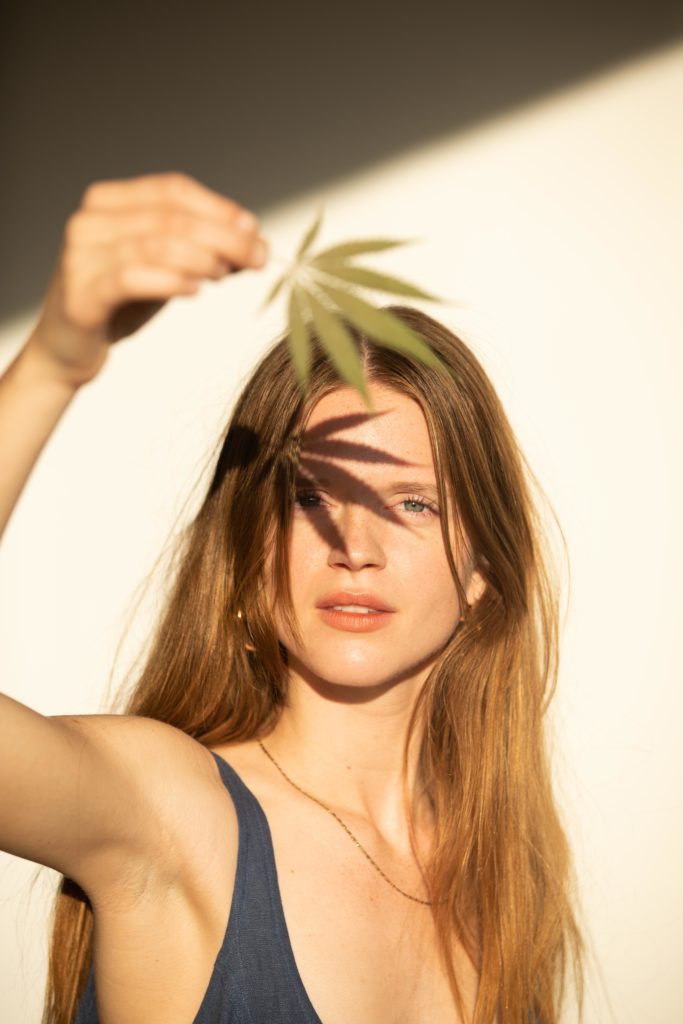December 13th, 2021

Courtesy Svn Space
Of all of the industries that are disrupting traditional retail, few are doing it better than CBD.
From luxe, minimalist boutiques in Manhattan to sleek product samples in department stores, the ingredient has come a long way from the skepticism and speculation most alternative medicine treatments are dealt. Standard Dose, Prima, Lab to Beauty, and even legacy players like Saks Fifth Avenue and Harrods of London are investing in CBD-infused tinctures, creams, and oils, the latest attempt to catapult the ingredient into the exclusive realm of luxury self-care.
Formally known as cannabidiol, CBD is the non-psychoactive part of the cannabis plant praised in the last few years for its wide range of health benefits. Supporting long- held anecdotal claims, recent studies have found that CBD reduces generalized social anxiety and depression, induces sleep in insomniacs, and, in its most purified form, was found to reduce the severity of seizures in epileptic patients. Its dermatological benefits have also been discovered to fight inflammation by warding off free radicals, which reduces acne, diminishes wrinkles and evens the skin’s complexion.
Topicals, or CBD-infused body creams, are among the most popular products in the emerging market.

Courtesy Nature of Things
HIGH DEMAND
Despite CBD’s initial associations with marijuana culture, the new beautiful CBD brands have successfully reinvented its reputation in the luxury market, reflected most by its consumer demographics: the prime customer for CBD products is 40 years old, highly educated, and employed full-time. What’s more, the gender breakdown for CBD consumers is nearly one-to-one, unlike general cannabis products whose customers are more than two-thirds male.
By 2024, BDS Analytics predicts that the collective market for CBD in the United States will surpass $20 billion across pharmaceuticals, dispensaries, and general market retail; for reference, the same report estimated the entire organic food industry will be worth $74 billion. That’s a 49 percent compounded annual growth rate predicted across six years, from $1.8 billion in sales in 2018.
The collective CBD market in the United States is expected to surpass $20 billion by 2024.
The growing usage, combined with emerging clinical proof of CBD’s effectiveness, has culminated in this explosion in the market, where traditional investors are backing cannabis-focused venture capital and private equity firms. For example, Tuatara Capital, a New York private equity firm, just raised over $200 million in their second fundraise, the largest-ever fund dedicated to the booming industry.

Courtesy Nature of Things
Hemp vs. Marijuana: While both are varieties of the Cannabis plant, “hemp” classifies varieties that contain 0.3% or less THC content (by dry weight). “Marijuana” classifies varieties that contain more than 0.3% THC. Both can yield the same CBD extract.
WHY NOW
“Three years ago, most conversations around CBD revolved around explaining what it was and that it wouldn’t get you high,” says Laurel Angelica Meyers, the co-founder and COO of Prima, a CBD skincare brand. JP Collett, the CEO and founder of Nature of Things, a luxe online retailer of CBD skincare products, explains that in its early days on the market, “CBD and first-mover brands broke into the mainstream by way of early retail adopters in the mass channels like CVS, Kroegers, Sephora and Walgreens, putting much of their value on revenue, not quality or brand.” This resulted in an initially ambivalent reception in the luxury market.
But that’s shifted. Experts identify three distinct influences that make today’s luxury market uniquely welcoming to the ingredient.
In addition to creams, tinctures, and oils, hemp, the strongest known natural fiber in the world, is also being used to make fabric that is more absorbent, durable, and insulating than cotton.
First, the legalization of marijuana has become part of the national conversation. Within the past decade, close to a dozen states have completely legalized the use of cannabis, and nearly triple that have legalized it for medical purposes. This has opened the door for clinical research. “For so long, no one was able to look into anything having to do with marijuana, including CBD, because it was a Schedule 1 drug,” says Meyers. Findings from the resulting wave of newly- legalized research support long-held claims that CBD can reduce inflammation, help with skin issues, and reduce anxiety, depression, and insomnia.
Because of those latter psychological benefits, the ingredient has become a COVID-19 favorite, the pandemic being the second cause for the most recent surge in sales. Elizabeth Hogan, a co-founder at GCH Inc., a brand development firm for CBD startups, said that demand for sleep-inducing products spiked during March and April, with most customers trying it for the first time in those months. Research conducted by consumer research firm Brightfield Group in March found that 39 percent of CBD consumers expected to increase their usage during lockdown, and 53 percent cited anxiety as their number one ailment that CBD cures, followed by depression and insomnia in third and fourth place. With lockdown orders causing a rise in all three conditions nationwide, many who were previously skeptical of CBD have chosen to take it up as a form of self-indulgence and a relaxant. Though the pandemic has led to short-term spikes in a handful of industries, Hogan insists that CBD’s growth is long-term, as indicated by increased investment even before March.

Courtesy Svn Space
At the same time, the increase in luxury buying patterns towards alternative medicine and plant-based beauty in general has paved the way towards luxury consumers’ warm reception of CBD. With brands like Goop espousing acupuncture and wellness crystals, to natural beauty lines like Drunk Elephant becoming one of the fastest-growing skincare brands, buying patterns indicate there is more of an appetite for non-traditional methods of self-care in the market.
“People are looking for more natural methods,” says Grace Saari, co-founder of Svn Space, a luxe retailer of CBD skincare products. Despite the power of the pharma industry, “it’s about balance, and being able to have a little east-meets-west in all of our lives,” says Saari.
As brands evolve into ambassadors of lifestyles more than merchants of products, the next decade will reveal how much CBD truly becomes a part of that curation. Perhaps its use will become the golden standard of a healthy, balanced lifestyle. If the evident success of emerging CBD businesses is any proxy for the trend, then it’s certainly on its way.





